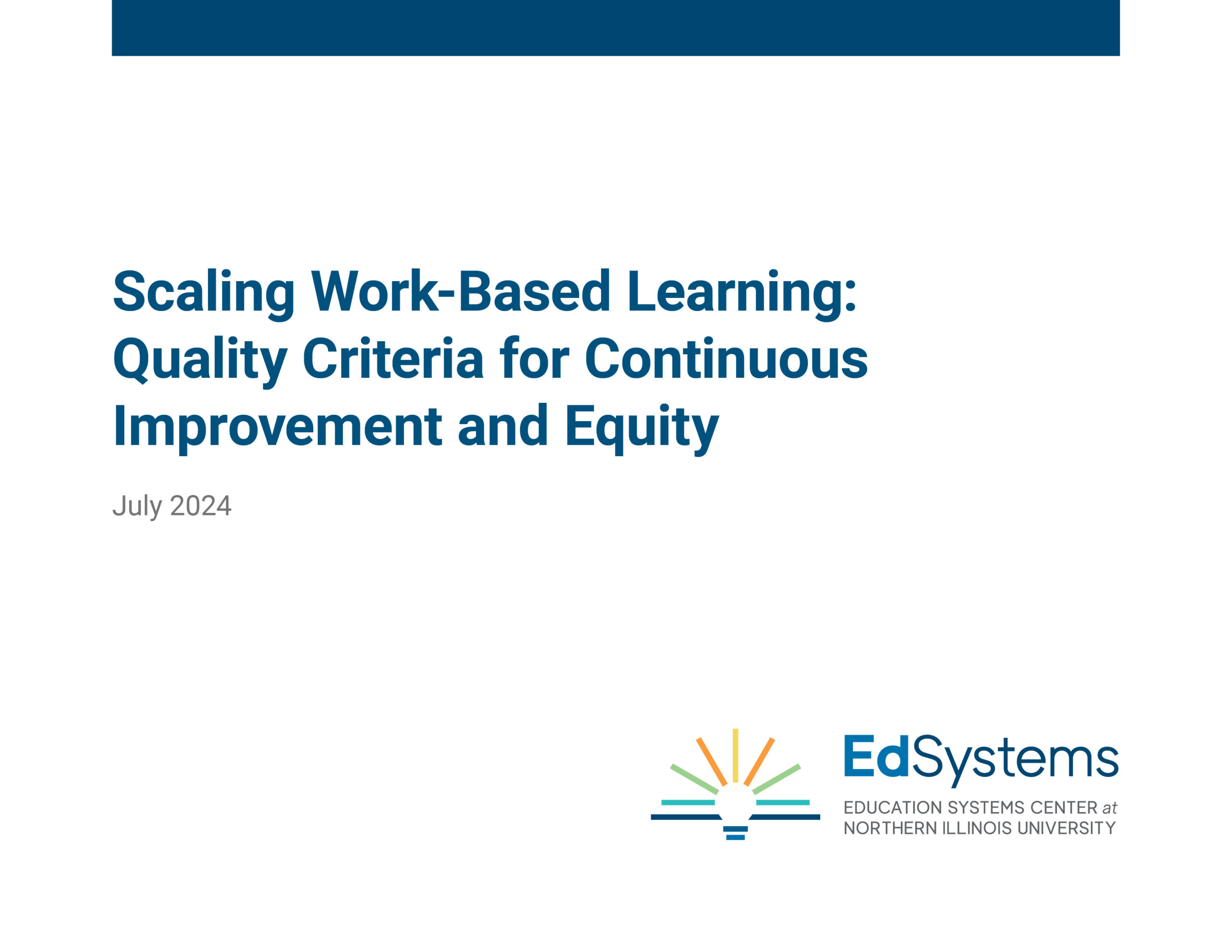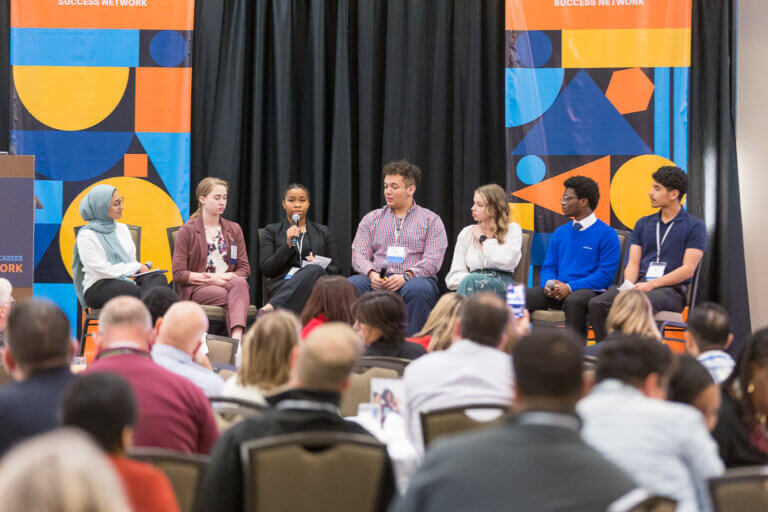School districts throughout Illinois are rolling out the College and Career Pathway Endorsement system, with recent legislation (Public Act 102-0917) set to drive significant scaling in the years ahead. This growth necessitates increased support for these programs, shifting focus from initial implementation to prioritizing continuous improvement and equity.
With generous support from the Walton Family Foundation, EdSystems convened a diverse, statewide advisory group to develop criteria to support districts in enhancing their professional learning offerings in alignment with the College and Career Pathway Endorsement. Advisory members contributed unique perspectives to finalize high-quality criteria and resources, as well as contributed equity and advising considerations for each section. The culminating document consists of high-quality criteria and resources for:
- Career Awareness
- Career Exploration
- Team-Based Challenges
- Career Development Experiences
- Systems and Processes
The sections also feature equity insights and student “I can” statements curated by EdSystems’ youth apprentice Emily Won.
Anybody who engages with work-based learning at any level is invited to utilize the criteria, including district leaders, school administrators, work-based learning coordinators, educators, community partners, employers, etc.
- As a district-level leader or school administrator, reflect on your role in creating effective structures that foster successful work-based learning experiences. Consider whether the current criteria align with your existing or ideal structures, and what may be missing.
- As a work-based learning coordinator or educator, reflect on successful strategies for planning and executing fruitful work-based learning experiences for students. Consider whether these align with your current best practices or could enhance your practices in an ideal scenario.
- As a community partner or employer, consider what schools have provided to engage students in effective work-based learning experiences, as well as what you can do to make these experiences beneficial for students on your end.
The deadline to provide public comment was May 31, 2024.
The work-based learning quality criteria are designed to work in companion with the new college and career pathways quality criteria.
Engaging the Advisory Committee
From October 2023 to April 2024, EdSystems brought together a diverse, statewide advisory group of stakeholders in work-based learning to develop criteria and engage in discussions about how to support districts in their efforts to advance their professional learning offerings. Comprised of work-based learning specialists, school administrators, state agency representatives, employers, and other school partners, the advisory committee followed a four-step process to engage with and refine state and nationwide best practices in work-based learning.
Step 1: Compile desk research on national and statewide best practices across the work-based learning continuum.
The EdSystems team gathered existing criteria from state and national resources and developed a list of best practices across the continuum, building off of existing rubrics and resources from exemplary community models. (The key sources are listed in the resource’s appendix.)
Step 2: Advisory Committee provides asynchronous initial feedback to determine what to keep, add, or edit.
Advisory Committee members engaged with the collated desk research on national and statewide best practices for a different work-based learning continuum component each month. The committee asynchronously voted and provided edits to the research-based first draft. Initial voting included a “green, yellow, red” voting process and the opportunity to suggest additional criteria, edits to existing criteria, and recommended resources and exemplars.
- Green: Everything is here to support high-quality
- Yellow: Some things are missing
- Red: There is a lot missing
Step 3: Advisory Committee engages in a consensus-building activity.
At virtual meetings, advisory committee members engaged in a reflection of the “green, yellow, red” activity, then ranked and discussed criteria to generate consensus on the final criteria for each continuum component. Discussions included bridging ideas together, suggestions for removing items, etc.
Following the convening, the EdSystems team incorporated the committee’s feedback into the draft.
Step 4: Final review of criteria with the advisory.
The advisory committee had a final opportunity to make suggestions on the draft criteria before release for public comment.
Incorporating Student Insights
The student perspective was highlighted in engagements with the advisory committee and in the resulting criteria through collaboration with Emily Won, an EdSystems’ youth apprentice. For each component, Emily gathered and shared insights from her high school peers and shared her own experiences with the Career and Technical Education Student Board and the Illinois Career and Success Network Student Advisory Council, in which she serves as President and Council Member, respectively. Student insights were provided for advisory members to consider when discussing criteria. Once criteria were finalized, Emily created and vetted with peers the included “I can” statements to help educators and students understand how the best practices directly relate to student capacity and ability for each continuum component. These statements are shared under each continuum component in the resource.



